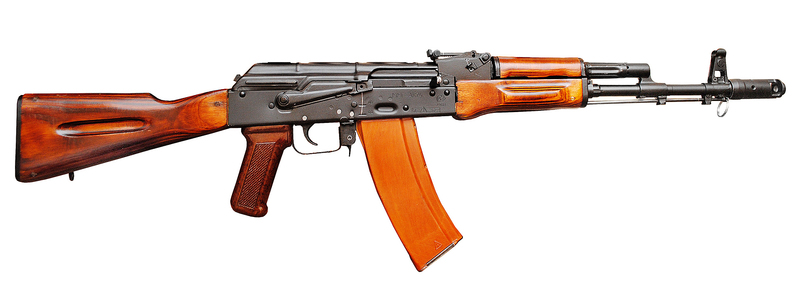|
Nazo Dharejo
Naz Mukhtiar Dharejo ( Sindhi: نازُو ڌَاريجو, born 1976/1977), also known as Waderi Nazo Dharejo, is a Pakistani activist and politician. Her defense of her agricultural land against male relatives inspired her moniker "Pakistan's toughest woman" and also the 2017 film ''My Pure Land''. Biography Nazo Dharejo's father Haji Khuda Buksh Khan Dharejo was a landlord from a Zamindar family that owned agricultural land in Pakistan's Sindh Province. Nazo Dharejo is his oldest daughter with his second wife Waderi Jamzadi. She was born in a haveli in Qazi Ahmed. Haji Khuda Baksh hired tutors for his daughters, so Nazo Dharejo learned Urdu and English in addition to Sindhi. She then earned her Bachelor of Arts in economics at Sindh University. Haji Khuda Baksh taught his daughters as well as his son to use firearms in case they might need to defend the family's land. The father of Haji Khuda Baksh (Nazo Dharejo's grandfather) had four wives and several other sons. The g ... [...More Info...] [...Related Items...] OR: [Wikipedia] [Google] [Baidu] |
Qazi Ahmed
Kazi Ahmed also Qazi Ahmed, is a town in Shaheed Benazir Abad District (formerly Nawabshah), Sindh Sindh (; ; ur, , ; historically romanized as Sind) is one of the four provinces of Pakistan. Located in the southeastern region of the country, Sindh is the third-largest province of Pakistan by land area and the second-largest province ... province, Pakistan. The town lies on the National Highway between Moro and Sakrand cities. After the construction of Amri Bridge, Kazi Ahmed has become a commercial hub for locals. The town is named after Qazi Ahmad Dimmai (Qudus Sarhu), an 18th-century Sufi saint who settled in the area and whose shrine is in the town as well. Geography During summer, temperatures reach up to 51 degrees Celsius. Furthermore, the town is surrounded by agricultural land where a wide variety of crops are cultivated. These crops include sugarcane, wheat, rice, and cotton. Transportation * N-5 National Highway (kilometre marker 275). * Nawabsha ... [...More Info...] [...Related Items...] OR: [Wikipedia] [Google] [Baidu] |
Kalashnikov Rifle
A Kalashnikov (Калашников) rifle is any one of a series of automatic rifles based on the original design of Mikhail Kalashnikov. They are officially known in Russian as "Avtomát Kaláshnikova" ( rus, Автома́т Кала́шникова, t=Kalashnikov's Automatic Gun), but are widely known as Kalashnikovs, AKs, or in Russian slang, a "Kalash". They were originally manufactured in the Soviet Union, primarily by Kalashnikov Concern, formerly Izhmash, but these rifles and their variants are now manufactured in many other countries. The Kalashnikov is one of the most widely used guns in the world, with an estimated 72 million rifles in global circulation. Types The original Kalashnikov rifles and their derivatives, as produced in the Soviet Union and later the Russian Federation. Variants Original AK variants (7.62×39mm) * Issue of 1948/49 – The very earliest models, with the Type 1 stamped sheet metal receiver, are now very rare. * Issue of 1951 – Ty ... [...More Info...] [...Related Items...] OR: [Wikipedia] [Google] [Baidu] |
Pakistani Politicians
The Politics of Pakistan () takes place within the framework established by the constitution. The country is a federal parliamentary republic in which provincial governments enjoy a high degree of autonomy and residuary powers. Executive power is vested with the national cabinet which is headed by Prime Minister of Pakistan (Shehbaz Sharif; since 11 April 2022), who works coherently along with the bicameral parliament and the judicature. Stipulations set by the constitution provide a delicate check and balance of sharing powers between executive, legislative, and judicial branches of the government. The head of state is the president who is elected by the electoral college for a five-year term. Arif Alvi is currently the president of Pakistan (since 2018). The president was a significant authority until the 18th amendment, passed in 2010, stripped the presidency of its major powers. Since then, Pakistan has been shifted from a Semi-presidential system to a purely parliam ... [...More Info...] [...Related Items...] OR: [Wikipedia] [Google] [Baidu] |
Sindhi People
Sindhis ( sd, سنڌي Perso-Arabic: सिन्धी Devanagari; ) are an Indo-Aryan ethnic group who speak the Sindhi language and are native to the province of Sindh in Pakistan. After the partition of British Indian empire in 1947, many Sindhi Hindus and Sindhi Sikhs migrated to the newly independent Dominion of India and other parts of the world. Pakistani Sindhis are predominantly Muslim with a smaller Sikh and Hindu minority, whereas Indian Sindhis are predominantly Hindu with a Sikh, Jain and Muslim minority. Sindhi people have been native to Sindh throughout history, apart from that their historical region has always came from the South-eastern side of Balochistan, the Bahawalpur region of Punjab and the Kutch region of Gujarat, India. The Sindhi diaspora is growing around the world, especially in the Middle East, owing to better employment opportunities. Etymology The name Sindhi is derived from the Sanskrit ''Sindhu'' which translates as river or seabod ... [...More Info...] [...Related Items...] OR: [Wikipedia] [Google] [Baidu] |
People From Sindh
A person ( : people) is a being that has certain capacities or attributes such as reason, morality, consciousness or self-consciousness, and being a part of a culturally established form of social relations such as kinship, ownership of property, or legal responsibility. The defining features of personhood and, consequently, what makes a person count as a person, differ widely among cultures and contexts. In addition to the question of personhood, of what makes a being count as a person to begin with, there are further questions about personal identity and self: both about what makes any particular person that particular person instead of another, and about what makes a person at one time the same person as they were or will be at another time despite any intervening changes. The plural form "people" is often used to refer to an entire nation or ethnic group (as in "a people"), and this was the original meaning of the word; it subsequently acquired its use as a plural form of per ... [...More Info...] [...Related Items...] OR: [Wikipedia] [Google] [Baidu] |
Living People
Related categories * :Year of birth missing (living people) / :Year of birth unknown * :Date of birth missing (living people) / :Date of birth unknown * :Place of birth missing (living people) / :Place of birth unknown * :Year of death missing / :Year of death unknown * :Date of death missing / :Date of death unknown * :Place of death missing / :Place of death unknown * :Missing middle or first names See also * :Dead people * :Template:L, which generates this category or death years, and birth year and sort keys. : {{DEFAULTSORT:Living people 21st-century people People by status ... [...More Info...] [...Related Items...] OR: [Wikipedia] [Google] [Baidu] |
LeftLion
''LeftLion'' is a printed and online culture and listings magazine which covers Nottingham. It was originally set up by three childhood friends, Jared Wilson, Alan Gilby and Tim Bates, and launched as a website on 1 September 2003. The first issue of the printed magazine came out a year later in Autumn 2004. The printed magazine was published bi-monthly from 2004-2014. Then, following a successful crowdfunding campaign on Kickstarter they raised the funds to publish the magazine monthly, which it has done ever since. The online magazine is updated daily. The publication takes its name from a stone lion in Nottingham's Old Market Square, which since Nottingham Council House was built in the 1920s has served as a meeting point for people in Nottingham City Centre. Contributors LeftLion is put together by a range of creatives who all either live in or have links to the city of Nottingham. Most of these contribute on a voluntary basis. Contributors have included Al Needham, acto ... [...More Info...] [...Related Items...] OR: [Wikipedia] [Google] [Baidu] |
Suhaee Abro
Suhaee Abro ( sd, سھائي ابڙو, ur, ) is a Pakistani dancer and actress. She specialises in the field of dance and is a trained classical dancer. Suhaee works in television plays, theatre, documentaries and music videos. She won best New Television Sensation Award (Female) at 1st Hum Awards 2013. She is the daughter of Sindhi poet and activist Attiya Dawood. Early life Suhaee Abro was born and raised in Karachi, Pakistan. Her mother (Attiya Dawood) is a well-known poet. Her father (Khuda Bux Abro), a visual artist, introduced her to many different kinds of world music. Abro began her training in classical dance at the age of seven from classical dancer Sheema Kermani, and performed in her first music video at the age of eight. She began appearing in telefilms when she was twelve. In 2010, after an injury that required surgery to her tailbone, Abro's doctor warned her not to dance. Because she had promised to perform a dance at her school, however, Abro performed ... [...More Info...] [...Related Items...] OR: [Wikipedia] [Google] [Baidu] |
Sarmad Masud
Sarmad Masud, also known as Sam Masud, is a British filmmaker whose 2017 movie ''My Pure Land'' was the first Urdu language film nominated by the UK for a Foreign Language Oscar award. Personal life Sarmad Masud was born in Bradford to immigrant parents from Pakistan. He grew up in Nottingham. He studied filmmaking at Hull School of Art and Design in Yorkshire. In 2012 he moved to London. In 2013 he married Caroline Bailey, a film art director and production designer. Career After graduation, Masud wrote and directed ''Adha Cup'' (2009), a short film in Urdu about two men ineptly trying to reunite the cast of a Bollywood musical. According to the ''Macau Daily Times'', it was "the first Urdu-language drama commissioned by British broadcaster Channel 4, which was later developed into a six-part series at the BBC." One reviewer called it "a delightful comedy adventure, a sort of bilingual Bollywood Blues Brothers by way of Nottingham." ''Two Dosas'' (2014) was Masud's second short ... [...More Info...] [...Related Items...] OR: [Wikipedia] [Google] [Baidu] |
PML-N
The Pakistan Muslim League (Nawaz) ( ur, , translit=Pākistān Muslim Līg (Nūn) PML(N) or PML-N) is a centre-right and liberal conservative political party in Pakistan. Alongside the Pakistan Tehreek-e-Insaf (PTI) and Pakistan Peoples Party (PPP), it is one of the three major political parties of the country. The party was founded by former Prime Minister Nawaz Sharif after the dissolution of Islamic Democratic Alliance in 1993. The party's platform is generally conservative, which involves supporting free markets, deregulation, lower taxes and private ownership. Although the party historically supported social conservatism, in recent years, the party’s political ideology and platform has become more liberal on social and cultural issues. One of several continuing factions of the original Muslim League, the seeds of the party were sown following the 1985 Elections when the Prime Minister of Pakistan Muhammad Khan Junejo organised the supporters of President Zia-ul-H ... [...More Info...] [...Related Items...] OR: [Wikipedia] [Google] [Baidu] |
Singapore Straits Times
''The Straits Times'' is an English-language daily broadsheet newspaper based in Singapore and currently owned by SPH Media Trust (previously Singapore Press Holdings). ''The Sunday Times'' is its Sunday edition. The newspaper was established on 15 July 1845 as ''The Straits Times and Singapore Journal of Commerce''. ''The Straits Times'' is considered a newspaper of record for Singapore. The print and digital editions of ''The Straits Times'' and ''The Sunday Times'' have a daily average circulation of 364,134 and 364,849 respectively in 2017, as audited by Audit Bureau of Circulations Singapore. Myanmar and Brunei editions are published, with newsprint circulations of 5,000 and 2,500 respectively. History The original conception for ''The Straits Times'' has been debated by historians of Singapore. Prior to 1845, the only English-language newspaper in Singapore was ''The'' ''Singapore Free Press'', founded by William Napier in 1835. Marterus Thaddeus Apcar, an Armenian m ... [...More Info...] [...Related Items...] OR: [Wikipedia] [Google] [Baidu] |

_1938.jpg)

